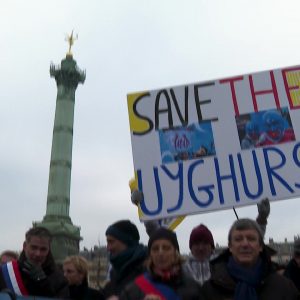US aid cut sparks warning of ‘alarming increase’ in hepatitis transmission
GENEVA (AA) – The global fight against viral hepatitis faces a critical setback following the Trump administration’s decision to pause foreign aid and to withdraw the US from the World Health Organization (WHO), warned the executive director of The Hepatitis Fund.
Finn Jarle Rode told Anadolu that the decision exacerbates an already severe funding crisis, making it even more difficult to meet the WHO’s goal of eliminating viral hepatitis by 2030.
“The latest numbers from WHO show that in many aspects, progress is faltering, and we are even seeing increasing numbers of deaths,” Rode said.
Before the US withdrawal, hepatitis-related programs were already significantly underfunded, he pointed out. He added that global health organizations such as the WHO, the Global Fund and GAVI played a crucial role in supporting efforts to combat hepatitis B and C. However, the sudden withdrawal of American financial support is expected to have “immediate and severe consequences.”
“The elimination of viral hepatitis has been neglected for too many years,” Rode noted. “If no other government comes forward to close the funding gap, we will face an alarming increase in transmission.”
On Jan. 20, his first day in office, Trump signed dozens of executive orders, including one beginning the country’s withdrawal from the WHO and another pausing foreign aid under the executive order “Reevaluating and Realigning United States Foreign Aid.”
– Hepatitis testing, diagnostics ‘most at risk’
Among the areas most at risk due to the funding cut are hepatitis testing and diagnostics, according to Rode. He emphasized that all aspects of the hepatitis response—from prevention to treatment—will be impacted.
In response to the crisis, The Hepatitis Fund is working to engage other governments and stakeholders to mitigate the fallout from the US decision.
Rode said his organization is maintaining a “constant ongoing dialogue” with multiple governments to highlight the urgency of the situation.
“This does not apply only to the impact of the US stopping aid; it also applies to the much more dangerous rub-on effect it can have on other government thinking,” he said.
Despite the setback, he said The Hepatitis Fund remains actively engaged with USAID and US officials in an effort to encourage continued collaboration and minimize disruptions to essential programs.
As global health organizations scramble to address the widening funding gap, experts warn that failure to act quickly could lead to an alarming increase in hepatitis infections and deaths worldwide.
In its first reaction to the US decision, the Fund said in a statement: “The WHO provides essential guidelines for hepatitis care. Its global hepatitis report from April last year highlights just how vital its work is in shaping our strategies.”
It said that with continued collaboration, the elimination of hepatitis can be achieved and “a healthier future for all” can be ensured.
“As our crucial ally, WHO has driven the global effort to eliminate hepatitis. This decision significantly impacts our shared mission,” it said.
“Cutting US funding to WHO weakens the fight against hepatitis, especially in low- and middle-income countries, which face even greater challenges in addressing this disease with reduced support,” it said, adding the decision puts all health non-governmental organizations at risk as existing donors may shy away from backing innovative solutions.












